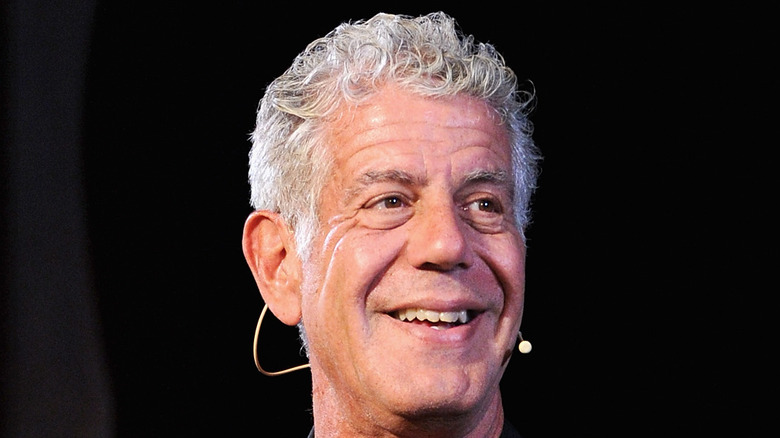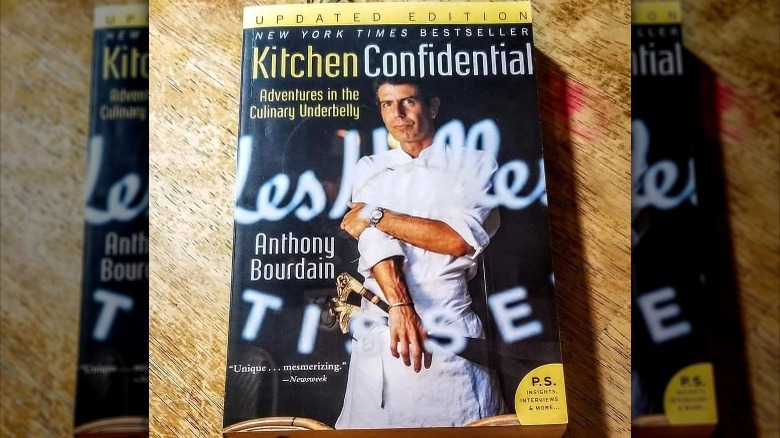How Anthony Bourdain's Kitchen Confidential Got Started
We may receive a commission on purchases made from links.
The well-worn path to getting a book published generally involves securing an agent to help bring your book to a publisher, developing a well-crafted book proposal, submitting the proposal to a publisher, and waiting — for the green light or, sadly, a rejection (per MasterClass).
You didn't need to be a well-established name and best-selling author like J.K. Rowling, Michael Crichton, Stephen King, or Danielle Steele to get a book published back in 2000. All you had to be was Anthony Bourdain, not yet a celebrity chef and TV personality, sending engaging, witty, "brilliant” emails to a friend filled with stories about his time in Japan working to open Les Halles Tokyo (per The Kitchn). The friend's wife happened to be the editorial director at publishing house Bloomsbury, Karen Rinaldi.
Well, it took a little more than that. Bourdain had an agent and had already demonstrated his considerable way with words in two crime novels (per Eater), "Bone in the Throat” (1995) and "Gone Bamboo” (1997). But his email correspondence helped pave the way for "Kitchen Confidential: Adventures in the Culinary Underbelly,” the memoir that would propel him from the back of the house to rock star chef status.
"I was thinking, he's so smart and so funny and banging his head against the wall to write fiction,” Rinaldi recalled in an interview with The Kitchn. "But if he can write an email like this, he can write nonfiction.”
Bourdain's emails and eye-opening New Yorker expose led to Kitchen Confidential
When Anthony Bourdain came home to New York from Japan, the story goes, he already had a contract to write a nonfiction restaurant-themed book. And he had already come up with a title for it: "Kitchen Confidential” (per The Kitchn).
Meanwhile, he had already written a searing, eye-opening expose about behind-the-scenes life in the NYC restaurant world that would eventually find a home in the pages of The New Yorker ("Don't Eat Before Reading This”). The essay's now-famous opening lines read: "Good food, good eating, is all about blood and organs, cruelty and decay. It's about sodium-loaded pork fat, stinky triple-cream cheeses, the tender thymus glands and distended livers of young animals.”
When Bourdain took his own life in 2018, The New York Times recommended reading (or re-reading) "the best of Anthony Bourdain,” including The New Yorker essay and "Kitchen Confidential,” the book that changed Bourdain's life and changed the way many of us view restaurants and life behind the kitchen door.
"Bourdain clearly operates with all six burners on scorch, and the result keeps the reader excited,” USA Today enthused in a review.
If you or anyone you know is having suicidal thoughts, please call the National Suicide Prevention Lifeline at 1-800-273-TALK (8255).

